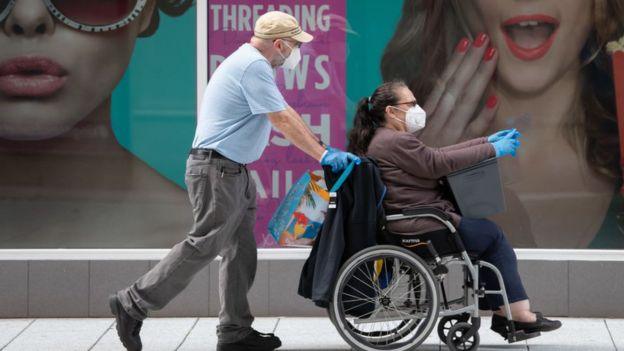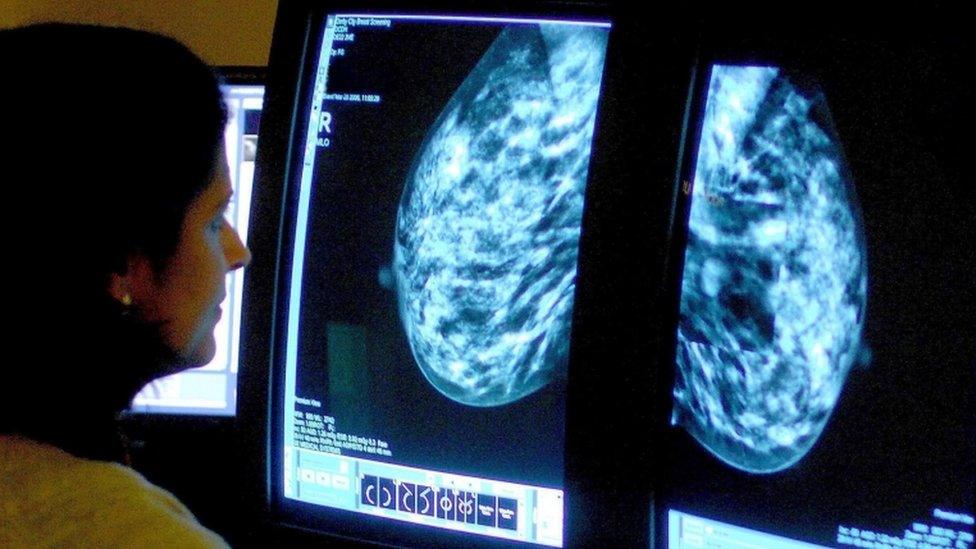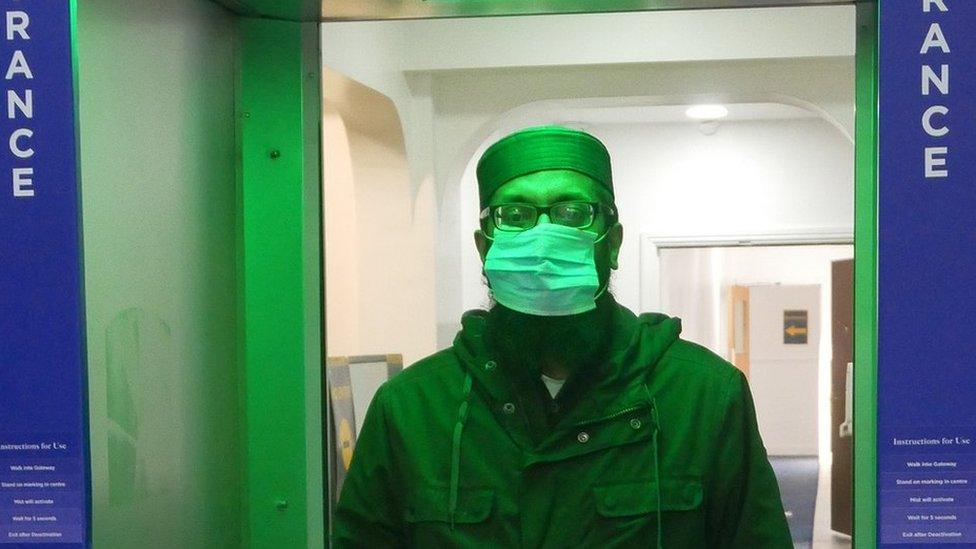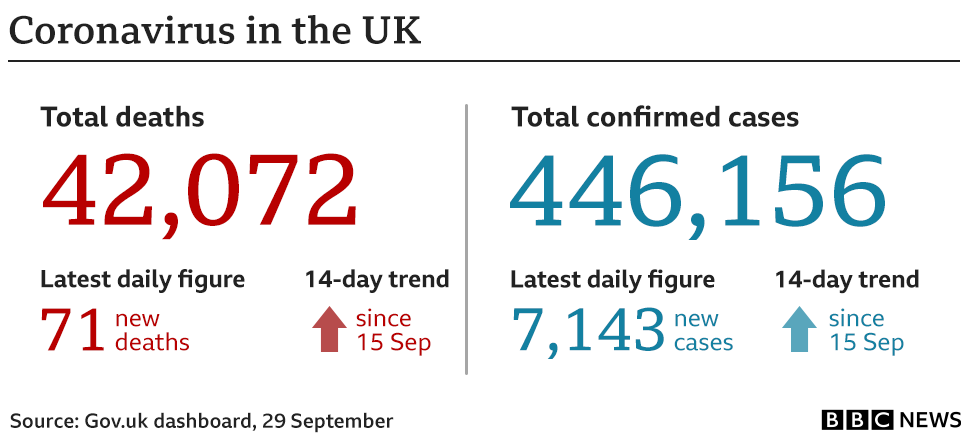Coronavirus: Restrictions latest, breast screening and quarantine breakers
- Published
Here are five things you need to know about the coronavirus pandemic this Wednesday morning. We'll have another update for you at 18:00 BST.
1. Unhappiness over restrictions grows
MPs will vote later on whether to renew the legislation that gives the government power to impose coronavirus restrictions without parliamentary approval. A group of Tory MPs was already threatening to rebel, and now the influential Commons Liaison Committee is warning that introducing further measures without giving MPs a say would "not be acceptable". Ministers insist they're trying to protect lives, but are worried enough to be working on some kind of compromise. It comes as tougher restrictions come into force today in north-east England - the ones that confused Boris Johnson - and in four more areas of Wales on Thursday.
Prime Minister Boris Johnson initially got the rules wrong when questioned at a press briefing

2. Call to extend 'lifeline' payment
Millions of the UK's poorest households could see their incomes cut by £20 a week from April. The government introduced a year-long rise in benefit payments during lockdown. As things stand, there's no plan to extend that boost, but a coalition of 50 charities, food bank providers and other organisations is warning that losing the "lifeline" payment could plunge struggling households further into the red. Chancellor Rishi Sunak outlined a series of new measures last week, but some people have told us they make things worse, not better.

The charities are also unhappy that many disabled people and carers are currently excluded from the additional £20 a week support

3. Breast screening fears
Almost a million UK women missed out on vital breast screening during lockdown, according to a leading charity. Breast Cancer Now believes the four-month suspension of screening programmes means about 8,600 of those women will have undetected breast cancer. It wants to see an action plan and more resources to tackle the problem. It's just the latest warning about the impact of the pandemic on cancer care.


4. Holiday quarantine breakers
We don't know how many people have been ignoring the law that requires them to self-isolate for two weeks after coming back from a Covid-19 hotspot. But rates of infection from people who have recently travelled overseas have been rising, and figures out later for the number of fines imposed will shed more light. Our home affairs correspondent Dominic Casciani has spoken to some who've done it without being caught. One, Alice, told him she knew it was "selfish" but had no regrets.
I isolated for a couple of days - then I just thought, you know what, I'm fine

5. Making worship safer
The closure of churches, mosques and temples during lockdown left a gaping hole in many people's lives, and their reopening brought both religious and social solace to many, particularly older people. But there are inevitably concerns about collective worship if infections keep spreading. One Bradford mosque is trying out new equipment that could help, and in his latest diary for the BBC, Dr John Wright takes a look. He also finds out how other places of worship have been adapting.



And don't forget...
Find more information, advice and guides on our coronavirus page.
Plus, a reminder for you of why the R number matters so much when it comes to taking decisions about the pandemic.


What questions do you have about coronavirus?
In some cases, your question will be published, displaying your name, age and location as you provide it, unless you state otherwise. Your contact details will never be published. Please ensure you have read our terms & conditions and privacy policy.
Use this form to ask your question:
If you are reading this page and can't see the form you will need to visit the mobile version of the BBC website to submit your question or send them via email to YourQuestions@bbc.co.uk, external. Please include your name, age and location with any question you send in.

ILLEGAL LOCKDOWN RAVES: Annie Mac on Coronavirus Newscast
FOOD REVOLUTION: Is the way we produce and buy food set to change for good?
